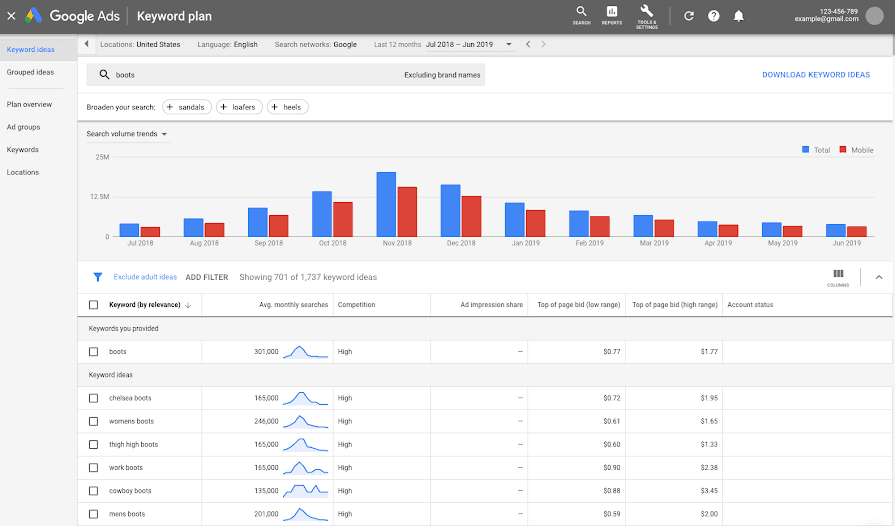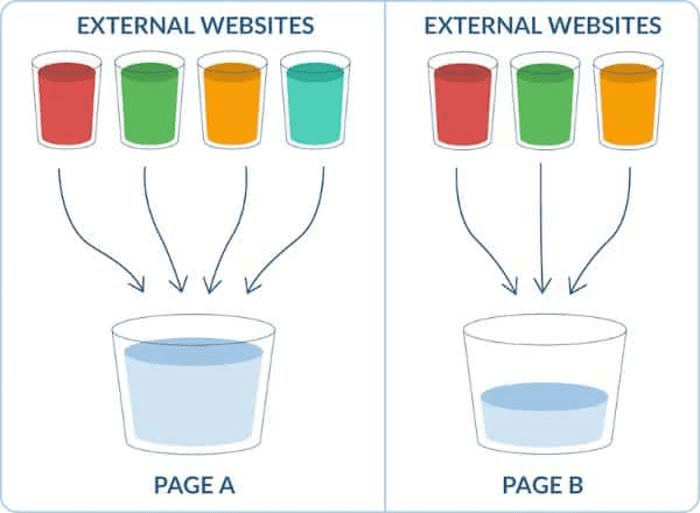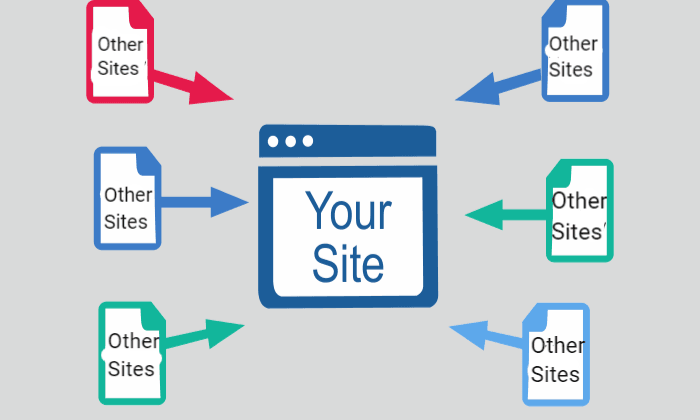SEO keyword metrics are essential for understanding how keywords impact your website's visibility, traffic, and engagement. From search volume to keyword difficulty, these metrics guide effective strategies. At Keyword Metrics, we simplify this topic to help you optimize with confidence!
What Are SEO Keyword Metrics?
SEO keyword metrics are measurable data points used to evaluate the performance of specific keywords in search engine optimization (SEO). These metrics help marketers and businesses understand how keywords impact website visibility, traffic, and engagement.
By analyzing these metrics, you can refine your SEO strategy to better match user intent and improve search engine rankings.
How SEO Keyword Metrics Work in SEO
SEO keyword metrics provide insights into how keywords interact with search engines and users. Common metrics include:
- Search Volume: The average number of searches for a keyword in a given time frame, typically monthly. For example, "best running shoes" may have a search volume of 50,000 searches per month.
- Keyword Difficulty (KD): A score indicating how hard it is to rank for a keyword. A low KD (e.g., 20/100) is easier to rank for than a high KD (e.g., 80/100).
- Click-Through Rate (CTR): The percentage of users who click on a search result after searching for a keyword. A high CTR suggests the keyword matches user intent effectively.
- Cost Per Click (CPC): The cost advertisers pay per click in paid search campaigns. Keywords with high CPCs often have high commercial value.
Tools for Tracking and Analyzing SEO Keyword Metrics
When it comes to SEO keyword metrics, the right tools can make all the difference in refining your strategy and tracking performance. Tools can be broken down into First-Party and Third-Party categories, each offering unique benefits for your SEO efforts.
First-Party Tools: More Accurate Metrics
These first-party tools are mostly provided by Google themselves and provide the most accurate, up-to-date data about how your site performs in search results. Relying on them ensures that you're aligning your strategy with actual user behavior and search engine signals.
Google Search Console (GSC)
Google Search Console is one of the most reliable sources for first-party data. It provides direct insights into how your website performs in Google search results, including impressions, clicks, and average positions for keywords you already rank for. Using GSC ensures you're working with data from the very search engine you're optimizing for, which gives you a more accurate view of how your content is performing.
Google Keyword Planner
Google Keyword Planner helps identify potential keywords by providing search volume, competition, and suggested bid prices. Although it's primarily designed for advertisers, it’s a valuable tool for understanding keyword trends and gauging interest in specific topics. Because it’s a Google product, the data is inherently aligned with search engine trends.

Google Analytics
Google Analytics offers an in-depth look at how users interact with your content. While it doesn’t provide specific keyword data as it once did, you can still monitor organic traffic, bounce rates, and user behavior for the keywords you're targeting. This helps in understanding how well your content matches user intent and which keywords drive engagement.
Keyword Metrics
Keyword Metrics integrates with Google Search Console, pulling in data directly from your site’s performance on Google. This integration enables you to quickly identify the keywords you already rank for but might not be targeting effectively. The tool scans your content, highlights keyword opportunities, and generates reports that help you double down on what’s already working.
Third-Party Tools: More Data, Less Accuracy
Ahrefs
Ahrefs is one of the most popular third-party SEO tools. It provides a wealth of data, including keyword search volume, backlinks, and keyword difficulty scores. While Ahrefs’ data can be incredibly useful for research, it is based on its own crawling of the web and may not always match the data from first-party tools like Google Search Console. The information can be outdated or approximate, especially if the tool hasn’t crawled your site recently.
SEMrush
Like Ahrefs, SEMrush offers robust keyword data, competitive analysis, and tracking of backlinks. It’s highly regarded for its ability to analyze competitor sites and identify new keyword opportunities. However, as a third-party tool, it may not always reflect the exact data Google provides, so it’s best used in conjunction with first-party tools for a more comprehensive strategy.
Moz
Moz offers keyword tracking, search volume insights, and SEO audit tools. Moz's keyword difficulty scores are useful, but, like the other third-party tools, they may not be as accurate as those found in first-party platforms. Moz can still give you a broader understanding of keyword trends and competition, which can be valuable when combined with Google data.
When to Rely on Each Type of Tool
First-Party Tool
For the most accurate, actionable metrics, you should rely on Google’s suite of tools (Search Console, Keyword Planner, Analytics) and Keyword Metrics. These tools provide direct insights from Google, ensuring you align your strategy with what the search engine actually values.
Third-Party Tools
Use third-party tools like Ahrefs, SEMrush, and Moz for additional insights into competitors, keyword opportunities, and trends. While they may not always provide as precise data as first-party tools, they offer valuable context and a broader view of your SEO landscape.
Why Are SEO Keyword Metrics Important?
- Improved Targeting: SEO keyword metrics help identify the keywords your audience uses, allowing you to create content that directly addresses their needs.
- Performance Tracking: By monitoring these metrics, you can assess whether your SEO strategies are working or need adjustments. For example, a drop in CTR might indicate your title tags or meta descriptions need improvement.
- Resource Allocation: Metrics like Keyword Difficulty help prioritize efforts on keywords that are both relevant and achievable, saving time and resources.
- Strategic Insights: Metrics such as CPC and search volume reveal which keywords have commercial value, aiding in both organic and paid strategies.
Pro Tips for Using SEO Keyword Metrics Effectively
- Start with Long-Tail Keywords: For beginners, targeting long-tail keywords (e.g., "best budget running shoes for women") is easier and often leads to higher conversions compared to broader terms.
- Combine Metrics for Better Insights: Don’t rely on a single metric. For instance, a keyword with high search volume but low CTR might require a more compelling meta description or content rewrite.
- Monitor Trends: Regularly check seasonal keywords. For instance, "Halloween costumes" will have higher search volume leading up to October.
- Optimize for Intent: Match content to the keyword's search intent. For example, "how to tie running shoes" implies an informational intent, requiring a tutorial-style blog post.
FAQs about SEO Keyword Metrics
Q: What’s the difference between first-party and third-party SEO tools?
A: First-party tools (like Google Search Console) offer more accurate, up-to-date data directly from the search engine, while third-party tools (like Ahrefs) provide broader data but may be less precise.
Q: Can third-party tools help if I’m just starting with SEO?
A: Yes, third-party tools can provide valuable keyword research, competitive insights, and trend analysis, which is useful for beginners. However, it's essential to validate findings with first-party tools for accuracy.
Q: How often should I review my SEO keyword metrics?
A: It's ideal to check your keyword metrics at least once a month to track progress, adjust strategies, and capitalize on new opportunities. Regular reviews help keep your SEO strategy aligned with changes in search trends.
Related Glossary Terms to Explore
- Search Intent: Discover how understanding user intent behind keywords helps you create content that truly matches what people are searching for.
- On-Page SEO: Learn how to optimize your content using keyword metrics to improve your search rankings and user engagement.
- Keyword Research: Find out how using keyword metrics enhances your research process, helping you target the most valuable keywords for your SEO strategy.


